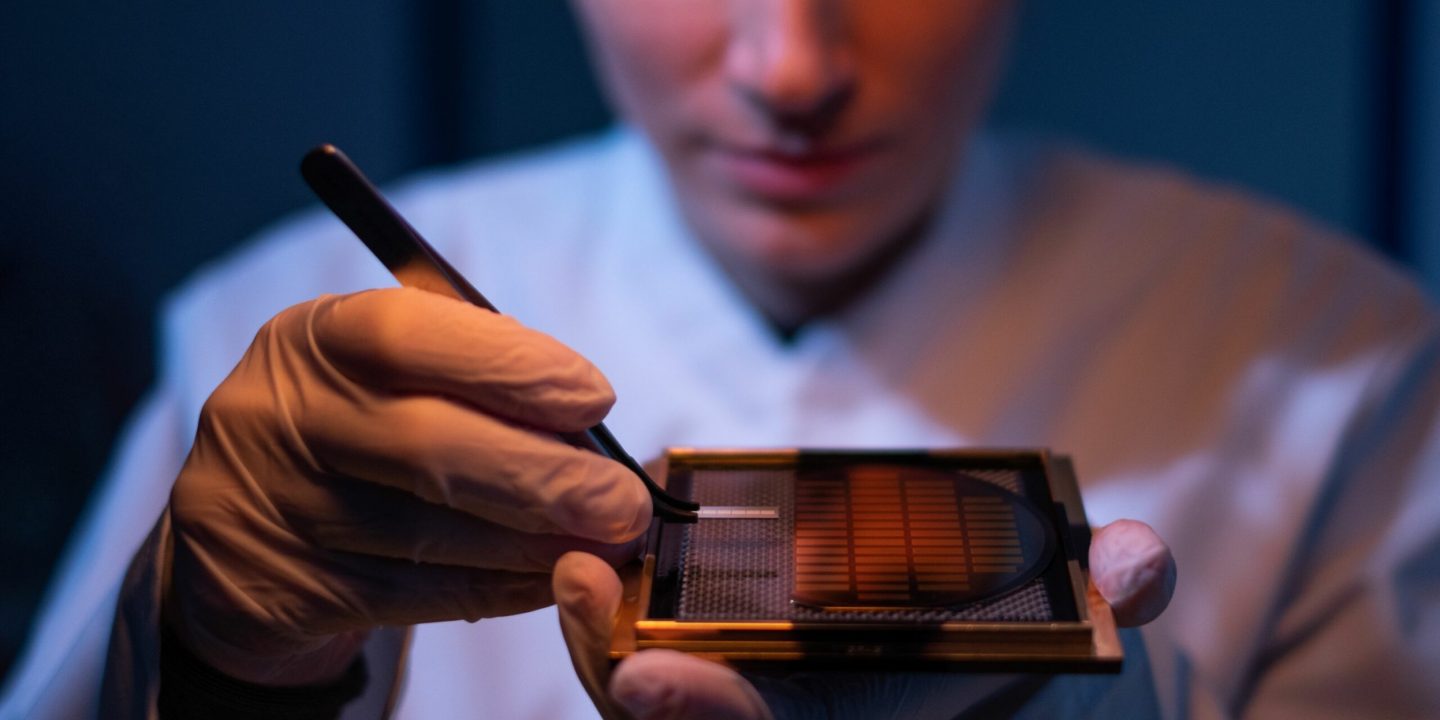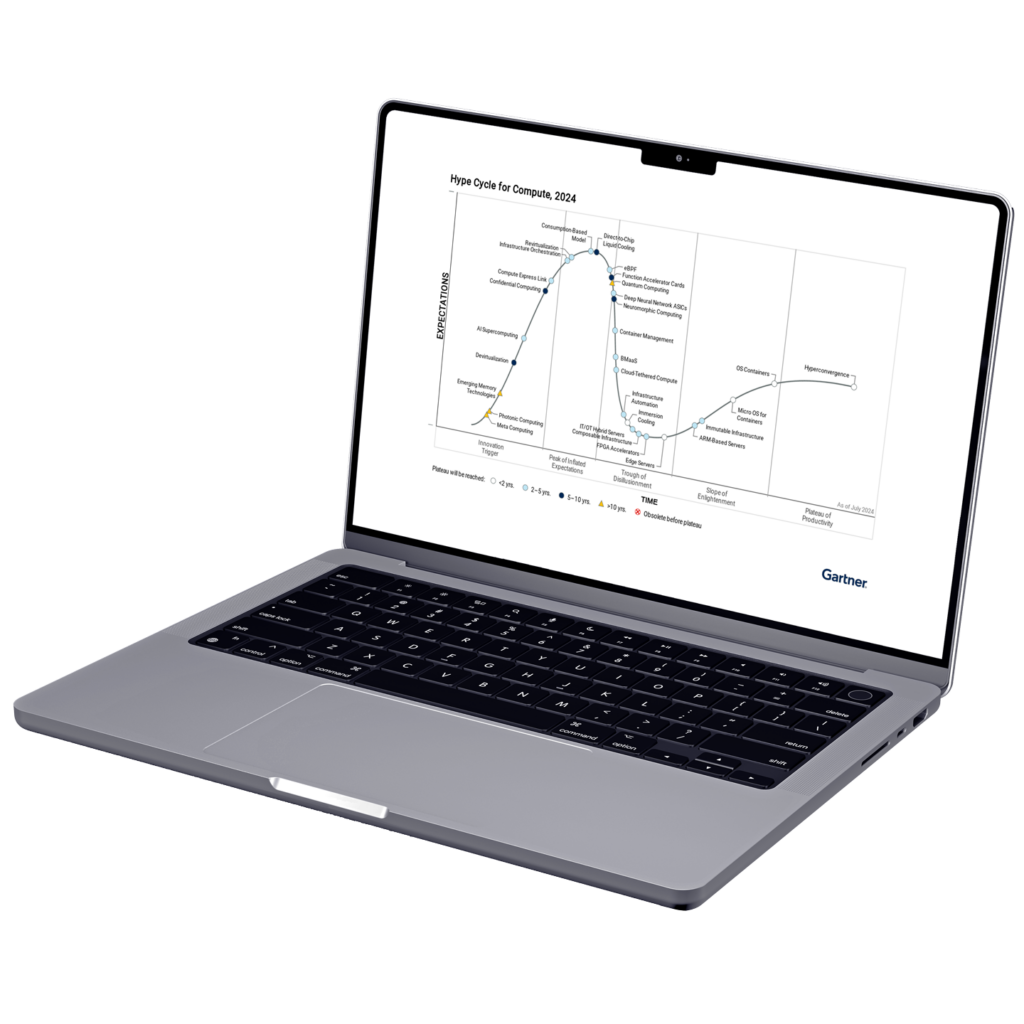Research cooperation between federal company and Stuttgart-based high-tech start-up
Stuttgart, 27. June 2023 – Quantum chips working with light may play a central role on the path to quantum computers in the future. As part of a research development contract from Bundesdruckerei GmbH, Q.ANT has developed a first prototype that successfully generates random numbers based on quantum effects.
Many areas of application can be considered for quantum computing. In the future, processors that are extremely powerful thanks to quantum effects could also solve complex problems in federal and public administration institutions. Bundesdruckerei GmbH and Q.ANT have been cooperating since 2022 within the scope of a research development contract and are testing the applicability of quantum technologies. As part of this contract, the first generation of Q.ANT chips was built into a processor. In a functional test, a system was developed to simulate random numbers. Such random number sequences are difficult to generate and can be used, for example, to encrypt data. The system meets the test criteria of the US National Institute of Standards and Technology (NIST) and could provide a further secure source of random numbers, in addition to conventional physical generators.
“As part of the Qu-Gov project funded by the Federal Ministry of Finance BMF, we as a federal IT security company are evaluating applications in the federal administration in order to enable the state to deal with quantum technologies in a sovereign manner. We are pleased to have found a competent partner in Q.ANT with whom we can jointly shape quantum computing and quantum communication “Made in Germany”,” says Dr. Oliver Muth, Project Manager and Senior Principal Secure Materials & Quantum Systems at Bundesdruckerei GmbH.
Q.ANT relies on its own technology platform for the quantum chips. The central components of the chips are the so-called optical waveguides: they enable the control of light and quantum effects in a highly integrated form. This in turn is a prerequisite for bringing quantum technologies out of the laboratories and into everyday products. To build the chips, Q.ANT uses a material system that connects the electronic world, based on silicon, with the photonic world. In this system, very thin layers of lithium niobate are applied on silicon and then structured into optical waveguides. Lithium niobate is seen as a possible key to future photonic quantum computing.
Q.ANT founder and CEO Michael Förtsch is very pleased about the cooperation with Bundesdruckerei GmbH: “Public authorities and state-owned companies have a special significance as early adopters of innovative technologies. They promote forward-looking technologies and support young companies in this way. In addition, this helps to build up and establish high technology in Germany.”
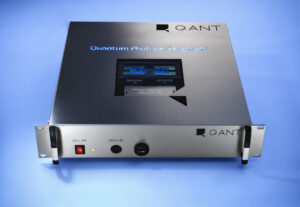
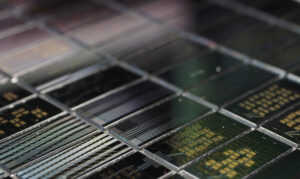
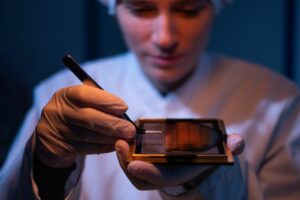
About Q.ANT
Q.ANT is a high-tech start-up in the field of quantum technology and was founded in 2018 as part of the TRUMPF Group. The company works on technologies for data generation and data processing. To this end, Q.ANT develops quantum sensors and quantum computer chips. With its four product lines Photonic Quantum Computing, Particle Metrology, Atomic Gyroscopes and Magnetic Sensing, Q.ANT is a partner for a wide variety of industries and fields of application, ranging from medical technology and autonomous driving to aerospace, mechanical engineering and process technology. Q.ANT employs around 80 people at its Stuttgart site.
Photo captions:
1. The 19″ housing contains a Quantum Photonic Processor for generating random numbers
2. A wafer with quantum chips structured with optical waveguides to control light
3. A Q.ANT employee inspecting a quantum chip
Contact for the media:
Q.ANT GmbH
Jörg Kochendörfer
Marketing Manager
+49 160 5619730
joerg.kochendoerfer@qant.gmbh
www.qant.de
